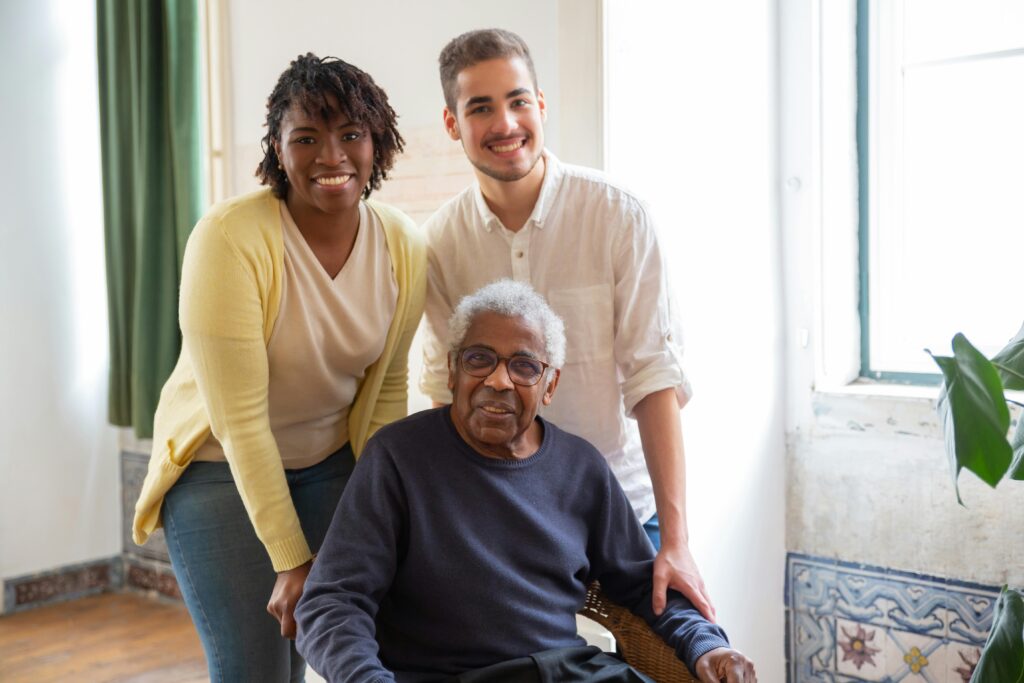Introduction:
Post-Traumatic Stress Disorder (PTSD) is a complex mental health condition that can have a profound impact on individuals’ lives and relationships. Whether you’re living with PTSD or supporting a loved one who is, navigating the challenges of everyday life can feel overwhelming at times. In this blog post, we will explore practical tips for supporting loved ones with PTSD, building resilience, and fostering understanding and compassion in the journey towards healing and recovery.
Understanding PTSD:
Before delving into strategies for navigating PTSD in everyday life, it’s important to understand the nature of the condition. PTSD is a mental health disorder that can develop in individuals who have experienced or witnessed a traumatic event. Symptoms of PTSD can vary widely and may include intrusive memories, flashbacks, nightmares, avoidance of trauma-related stimuli, negative changes in mood and cognition, and heightened arousal and reactivity.

Living with PTSD:
Living with PTSD can be challenging, as individuals may experience a range of symptoms that impact their daily functioning and quality of life. Common challenges faced by individuals with PTSD include:
-
Managing Triggers: Triggers are reminders of the traumatic event that can evoke distressing emotions and memories. Learning to identify and manage triggers is essential for individuals living with PTSD to cope with symptoms and reduce the risk of retraumatization.
-
Navigating Relationships: PTSD can affect relationships with family members, friends, and romantic partners, as individuals may struggle with emotional regulation, communication difficulties, and intimacy issues. Building healthy and supportive relationships is crucial for individuals with PTSD to feel understood, accepted, and valued.
-
Seeking Support: Seeking support from mental health professionals, support groups, and trusted individuals is essential for individuals with PTSD to cope with symptoms, process trauma, and build resilience. However, stigma, shame, and fear of judgment may prevent some individuals from seeking help, highlighting the importance of creating safe and supportive spaces for open and honest communication.
Living with PTSD:
Living with PTSD can be challenging, as individuals may experience a range of symptoms that impact their daily functioning and quality of life. Common challenges faced by individuals with PTSD include:
-
Managing Triggers: Triggers are reminders of the traumatic event that can evoke distressing emotions and memories. Learning to identify and manage triggers is essential for individuals living with PTSD to cope with symptoms and reduce the risk of retraumatization.
-
Navigating Relationships: PTSD can affect relationships with family members, friends, and romantic partners, as individuals may struggle with emotional regulation, communication difficulties, and intimacy issues. Building healthy and supportive relationships is crucial for individuals with PTSD to feel understood, accepted, and valued.
-
Seeking Support: Seeking support from mental health professionals, support groups, and trusted individuals is essential for individuals with PTSD to cope with symptoms, process trauma, and build resilience. However, stigma, shame, and fear of judgment may prevent some individuals from seeking help, highlighting the importance of creating safe and supportive spaces for open and honest communication.

Supporting Loved Ones with PTSD:
Supporting a loved one with PTSD requires empathy, patience, and understanding. Here are some practical tips for supporting loved ones with PTSD:
Educate Yourself: Educate yourself about PTSD, its symptoms, triggers, and treatment options. Understanding the nature of the condition can help you empathize with your loved one’s experiences and provide more effective support.
Practice Active Listening: Practice active listening by listening attentively to your loved one’s experiences, thoughts, and feelings without judgment or interruption. Validate their emotions, acknowledge their struggles, and offer empathy and compassion.
Be Patient and Understanding: Be patient and understanding with your loved one, recognizing that healing from trauma takes time and effort. Avoid minimizing their experiences or pressuring them to “get over it,” and instead offer unconditional love, support, and encouragement.
Offer Practical Support: Offer practical support to help alleviate stress and reduce triggers for your loved one. This may include assisting with daily tasks, providing transportation to appointments, helping with household chores, or offering childcare.
Encourage Self-Care: Encourage your loved one to prioritize self-care and engage in activities that promote relaxation, stress reduction, and emotional well-being. Encourage them to practice self-compassion, set boundaries, and prioritize their mental and physical health.

Building Resilience:
Building resilience is essential for individuals living with PTSD to cope with symptoms, overcome challenges, and thrive in everyday life. Here are some strategies for building resilience:
-
Develop Coping Skills: Develop coping skills to manage stress, regulate emotions, and cope with PTSD symptoms. This may include mindfulness practices, relaxation techniques, deep breathing exercises, and grounding exercises.
-
Cultivate Social Support: Cultivate social support by building and maintaining healthy relationships with friends, family members, and support groups. Surround yourself with individuals who understand and validate your experiences, and seek out community resources and peer support networks.
-
Practice Self-Compassion: Practice self-compassion by treating yourself with kindness, understanding, and acceptance. Be gentle with yourself and recognize that healing from trauma is a journey that requires patience, self-care, and self-compassion.
-
Set Realistic Goals: Set realistic goals for yourself and take small steps towards achieving them. Celebrate your progress and accomplishments, no matter how small, and acknowledge your strengths and resilience in overcoming adversity.
-
Seek Professional Help: Seek professional help from mental health professionals who specialize in trauma and PTSD. Therapy, medication, and other evidence-based treatments can provide support, guidance, and tools for managing symptoms and promoting healing and recovery.
Conclusion:
Navigating PTSD in everyday life can be challenging, but with understanding, support, and resilience, individuals can learn to cope with symptoms, overcome challenges, and thrive in their recovery journey. Whether you’re living with PTSD or supporting a loved one who is, know that help is available and that you’re not alone. By practicing empathy, patience, and self-care, individuals can build resilience, foster healing, and reclaim their lives from the impact of trauma. If you or someone you know is struggling with PTSD, reach out to Ignite Health and Wellness for compassionate and personalized mental health care tailored to your needs. Together, we can navigate the challenges of PTSD and work towards a brighter tomorrow.




